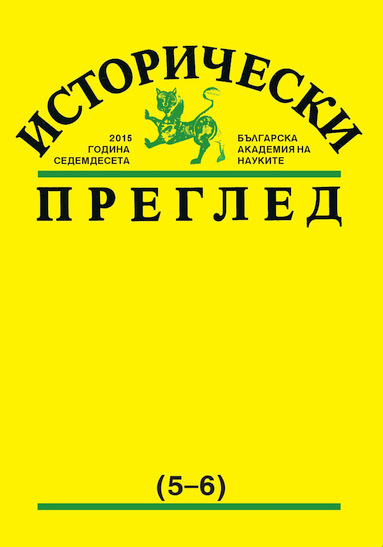От четничество към легален политически живот: ВМОРО след Младотурската революция
From rebellion to legal political life: IMORO after the Young Turk Revolution
Author(s): Slavi SlavovSubject(s): History, Diplomatic history, Military history, Political history, Recent History (1900 till today), Special Historiographies:, Pre-WW I & WW I (1900 -1919), The Ottoman Empire, Between Berlin Congress and WW I
Published by: Институт за исторически изследвания - Българска академия на науките
Keywords: revolutionary movement; IMORO; Young turk revolution; Union of Bulgarian Constitutional Clubs (UBCC); People's Fedеrative Party
Summary/Abstract: The Young Turk Revolution from the summer of 1908 led to a temporary democratization of the social and political life in the Ottoman Empire. Under the influence of the changed environment, the Internal Macedonian-Odrin Revolutionary Organization (IMORO) suspended its armed activity and legalized its bands. The organization actively participated in the establishment of political formations on Bulgarian national basis, temporarily removing from its program the achievement of “full political autonomy” for the regions of Macedonia and Odrin. Although legalized, IMORO retained its strong influence among the Bulgarian population in the Macedonia and Odrin regions. It was not officially disbanded and continued its existence, albeit in a highly altered form and in the conditions of a deep division within the revolutionary movement. This situation persisted until 1910 when, under the influence of the ever more complicating circumstances in the Ottoman Empire, the Internal Revolutionary Organization began to restore its structures and permanently oriented itself towards renewing the armed liberation struggle.
Journal: Исторически преглед
- Issue Year: 2015
- Issue No: 5-6
- Page Range: 237-262
- Page Count: 26
- Language: Bulgarian
- Content File-PDF

